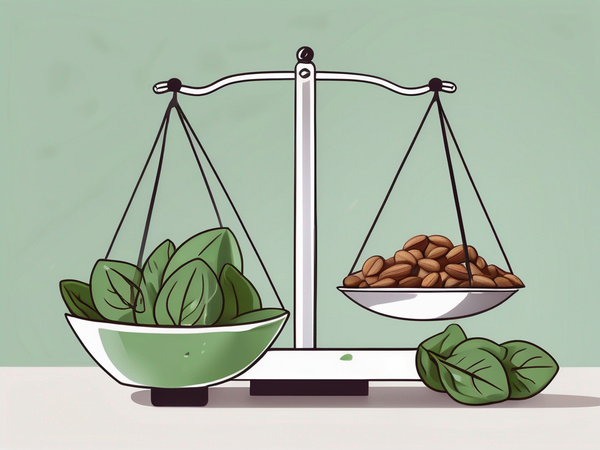Maintaining healthy body weight is the key to keep heart diseases, diabetes, cancer, and many other severe conditions at bay.
When the question comes to losing weight, the options are numerous of which majority offer quick fixes. Some go for counting calories, crash dieting, cutting back on sugar or fat, or gymming and exercising. Diets like keto, low fat, zone diet, etc., are also some options.
However, most of these methods are pretty hard to implement in your daily routine.
One need to understand that losing weight doesn’t have to be complicated. In fact, it might be as simple as adding more of one powerful nutrient to your diet: fiber.
Fiber consumption is closely linked to weight loss and weight management. Furthermore, fiber consumption can lower your blood pressure and improve your body's insulin response. Let us learn about fiber and the role it plays in weight loss in detail.
What is Fiber?
Fiber is a type of carbohydrate that is complex for the body to digest. Your body can break almost all carbohydrates in the form of small sugar molecules called glucose but not fiber. That is why it passes through the body undigested.
However, that doesn't mean fiber is not good for your body. Fiber is a great source of food for gut bacteria and is responsible for a healthy gut, weight loss, absorption of nutrients in the body, and helps in bowel movements and weight management too.
What Role Does Fiber Play in Weight Management?
An optimum weight is much crucial for the healthy functioning of a body. One way of maintaining a healthy weight is by consuming a high fibrous diet. According to research, dietary fiber for weight loss is a good option as it helps manage weight and prevents obesity.
1. Fiber Controls Your Appetite
Fiber is a master satiator! It fills you up quickly and keeps you full for a longer time by slowing down digestion and allowing food to enter your bloodstream at a slower rate. Remember, fiber has no magical properties that might contribute to your weight loss or general weight management journey. All it does is increases satiety, preventing the need of adding excess calories to your diet.
For example, if you consume a bag of potato chips, you will most likely start to feel hungry in an hour. But, consuming a baked sweet potato and its skin (fibrous food) will make you feel fuller without consuming many calories. So, it's simple. Fiber sends signals to your brain's receptors that it is time to stop eating. Thus, managing your appetite and eventually body weight.
2. Fiber Keeps the Gut Healthy
A lot of research proves that people with a low fiber intake can suffer from obesity or long or short-term weight gain, while people on a high fiber diet are most likely to lose weight.
When you consume the indigestible fiber, it reaches the gut unchanged. Here, the fiber breaks down into soluble fiber (the process is called fermentation). Fermentation releases short-chain fatty acids that play a huge role in reducing inflammation. Now, if you don't know, obesity is directly linked to low-grade inflammation. That means a reduction in inflammation can work in reducing obesity.
3. Fiber Regulates the Blood Sugar Level & Controls Sugar Cravings
Blood sugar level plays a significant role when it comes to appetite control and weight management.
Unstable blood sugar levels mean increased hunger cravings. It can be due to a high-carb diet that leads to an insulin spike resulting from low blood sugar levels. The levels will first rise and then drop low when you eat. This deep dip in the blood sugar level leads to increased appetite, high-calorie intake, and low energy. All of these factors are responsible for unhealthy body weight.
Soluble fiber helps in controlling weight and blood sugar levels.
The "soluble" fiber absorbs water, forms a kind of gel inside your gut, slowing the absorption of sugars into your bloodstream. Lower blood sugar levels mean lower insulin levels, which results into your body storing less fat
Inulin is one such type of soluble fiber. Even though not very viscous has been linked to controlling blood sugar levels and aiding belly fat loss.
Following a diet rich in dietary fiber will reduce insulin secretion and slow digestion and will even prevent you the sluggish feeling after eating. Thus, keeping your body weight in check.
What's the Best Way to include fiber in your diet?
Well, you can always go for foods rich in fiber, such as flaxseeds, sweet potatoes, Brussels sprouts, legumes and grains like oatmeal. Nuts, seeds, fiber rich fruits such as apricot, oranges, prunes, pears, strawberries, avocadoes, raspberries, etc., there's a more impactful way:
However it is a challenge to meet the required intake of daily fiber just by diet alone. Fiber supplements can help bridge the gap that your daily diet cannot fullfill.
Why Daily Fiber is ideal for you?
Daily Fiber is a 100% plant fiber-based supplement for a happy gut and overall good health of your body. It is scientifically formulated by the best scientists after three years of research in the U.S.
Daily Fiber is good for the smooth functioning of your brain, stronger the immunity system so that it responds to infections and toxins, and is good for digestive health.
It is also a perfect fiber blend for weight management as it has viscous fiber like Inulin and Fructooligosaccharides (FOS). Daily fiber helps you get rid of bloating and acidity and controls the appetite so that you can have optimum body weight. If you are a looking for soluble, grit free and healthy blend of prebiotic fibers, Daily Fiber is the best option.
Wrapping Up
Fiber is quite underrated when it comes to the benefits it offers. Not only does it helps you manage your weight, but it also ensures overall good health. So, if you want to naturally shed some weight and ensure good overall health, include fiber in your daily diet. And one of the best ways is to order Daily Fiber from Wellbeing Nutrition.
The supplement is tested, safe and effectively offers you the fiber your body needs. So, order your pack now.
References
Slavin JL. Dietary fiber and body weight. Nutrition. 2005 Mar;21(3):411-8. doi: 10.1016/j.nut.2004.08.018. PMID: 15797686. https://pubmed.ncbi.nlm.nih.gov/15797686/
Barber TM, Kabisch S, Pfeiffer AFH, Weickert MO. The Health Benefits of Dietary Fiber. Nutrients. 2020 Oct 21;12(10):3209. doi: 10.3390/nu12103209. PMID: 33096647; PMCID: PMC7589116. https://www.ncbi.nlm.nih.gov/pmc/articles/PMC7589116/
Vinolo MA, Rodrigues HG, Nachbar RT, Curi R. Regulation of inflammation by short chain fatty acids. Nutrients. 2011 Oct;3(10):858-76. doi: 10.3390/nu3100858. Epub 2011 Oct 14. PMID: 22254083; PMCID: PMC3257741. https://www.ncbi.nlm.nih.gov/pmc/articles/PMC3257741/
Russell-Jones D, Khan R. Insulin-associated weight gain in diabetes--causes, effects and coping strategies. Diabetes Obes Metab. 2007 Nov;9(6):799-812. doi: 10.1111/j.1463-1326.2006.00686.x. PMID: 17924864. https://pubmed.ncbi.nlm.nih.gov/17924864/
Slavin J, Carlson J. Carbohydrates. Adv Nutr. 2014 Nov 14;5(6):760-1. doi: 10.3945/an.114.006163. PMID: 25398736; PMCID: PMC4224210. https://www.ncbi.nlm.nih.gov/pmc/articles/PMC4224210/.
Wilding JP. The importance of weight management in type 2 diabetes mellitus. Int J Clin Pract. 2014 Jun;68(6):682-91. doi: 10.1111/ijcp.12384. Epub 2014 Feb 18. PMID: 24548654; PMCID: PMC4238418. https://www.ncbi.nlm.nih.gov/pmc/articles/PMC4238418/
Solah VA, Kerr DA, Hunt WJ, Johnson SK, Boushey CJ, Delp EJ, Meng X, Gahler RJ, James AP, Mukhtar AS, Fenton HK, Wood S. Effect of Fiber Supplementation on Body Weight and Composition, Frequency of Eating and Dietary Choice in Overweight Individuals. Nutrients. 2017 Feb 16;9(2):149. doi: 10.3390/nu9020149. Erratum in: Nutrients. 2017 Apr 20;9(4): PMID: 28212353; PMCID: PMC5331580. https://www.ncbi.nlm.nih.gov/pmc/articles/PMC5331580/
Schäfer AL, Eichhorst A, Hentze C, Kraemer AN, Amend A, Sprenger DTL, Fluhr C, Finzel S, Daniel C, Salzer U, Rizzi M, Voll RE, Chevalier N. Low Dietary Fiber Intake Links Development of Obesity and Lupus Pathogenesis. Front Immunol. 2021 Jul 15;12:696810. doi: 10.3389/fimmu.2021.696810. PMID: 34335609; PMCID: PMC8320762. https://www.ncbi.nlm.nih.gov/pmc/articles/PMC8320762/

























